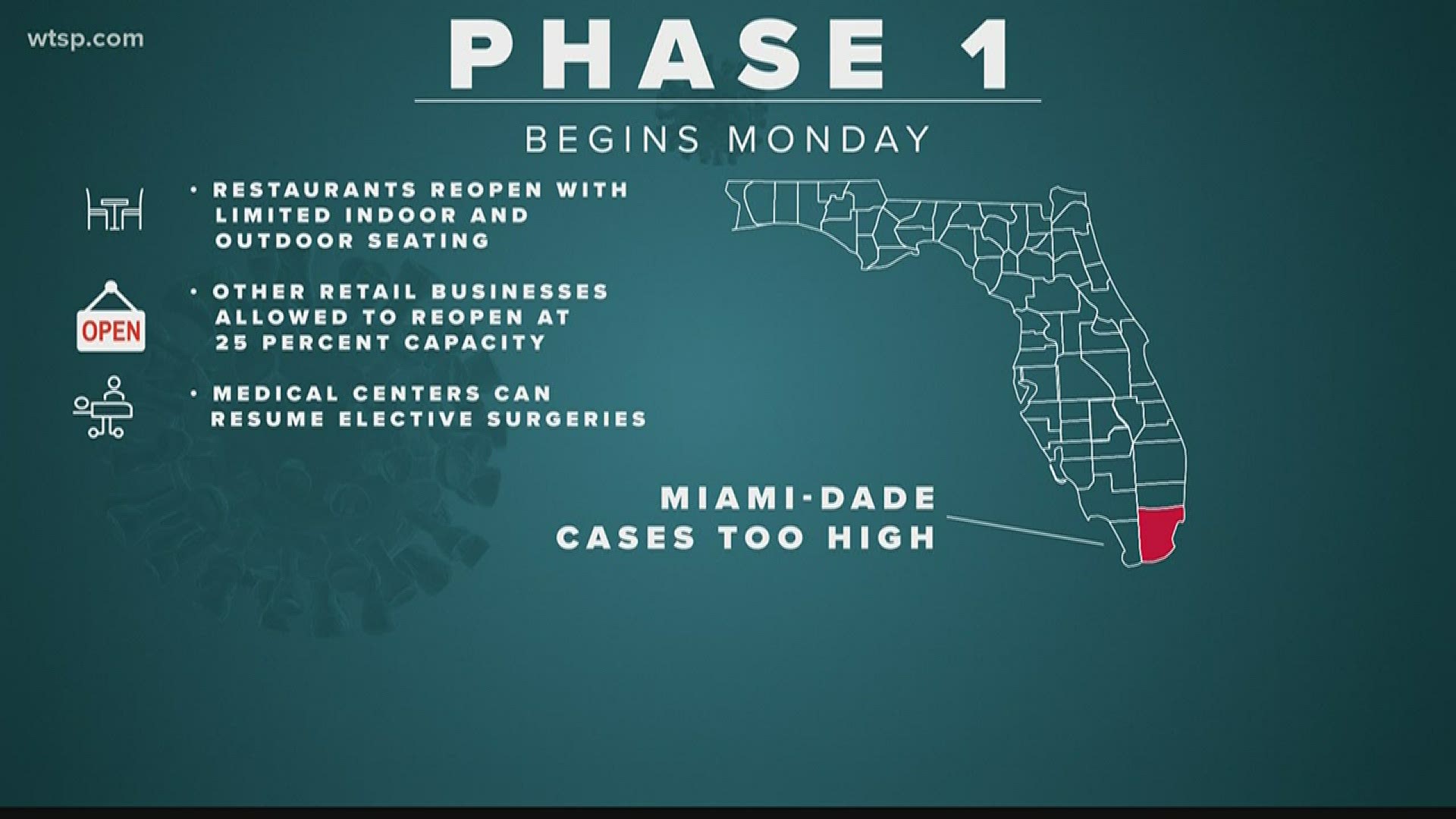TAMPA, Fla. — People in Tampa appeared to go on fewer trips requiring directions even weeks ahead of Gov. Ron DeSantis' stay at home order during the COVID-19 coronavirus pandemic.
It apparently wasn't the order itself that caused people to stay home or limit their movement: It was the shutdown of the greater economy.
Apple earlier this month released mobility data showing how people drove, walked or used public transit since the beginning of the year. It's a sliver of information from a much larger population as the data collected is sourced from iPhone users using the Maps application -- it does not include people who are on Android phones, for example, leaving out a whole group of people.
Still, it may be interesting insight into how many people changed their habits as coronavirus spread throughout Tampa Bay.
Zero percent is considered the baseline.
The chart above shows spikes in requests for directions each weekend, with one notable jump: Gasparilla on Saturday, Jan. 25. Compared to normal, Apple said there was a 469-percent increase in requests for walking directions.
People must have kept it easy the weekend after, with lesser rises each weekend from then on. But as the coronavirus threat was declared a pandemic on March 11, there was a sharp drop-off in the number of requests for directions.
The weekend of March 14-15 seemed to be the tipping point for a lot of people. It was around this time President Donald Trump also declared the coronavirus pandemic a national emergency and stores, like Publix, began reducing hours.
DeSantis on March 13 activated parts of the Florida National Guard to support areas of the state needing help responding to coronavirus, especially South Florida.
Apple's data shows an even greater decrease from there as restaurants needed to cut capacity right away and the region's economy began to shut down.
DeSantis announced the statewide order on April 1.
The data, Apple said in a news release, could provide "provide helpful insights to local governments and health authorities and may also be used as a foundation for new public policies by showing the change in volume of people driving, walking or taking public transit in their communities."
The company said it does not keep a history of where users have been and it does not associate the data with a person's unique Apple ID.
Google released a similar dataset earlier in the month, showing a county-by-county breakdown of how people are using Google Maps. Its report for Hillsborough County shows a 49-percent drop in information requests for retail and recreation and a 57-percent decrease in requests for parks.
There was a 16 percent increase for residential-related information.
What other people are reading right now:
- Gov. DeSantis says reopening can begin May 4, restaurants can open with restrictions
- 'Ineligible' for unemployment assistance? Florida wants you to apply again
- Masks, shields and less seating: Changes coming to Tampa International Airport during pandemic
- Pinellas County beaches reopening Monday with restrictions
- Florida's unemployment failures date back to 2013
- Drug remdesevir proves effective against COVID-19 in US study
- Hotlines, websites offer the latest on COVID-19
FREE 10NEWS APP:
►Stay In the Know! Sign up now for the Brightside Blend Newsletter



